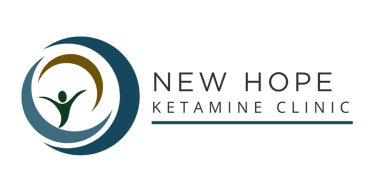Address: 21660 W Field Pkwy, Suite 301, Deer Park, IL 60010

Celebrating Diversity
The Intersection of Mental Health and Cultural Diversity
Admin
10/25/2024
In the mosaic of human experience, diversity is a rich tapestry that encompasses a multitude of identities, backgrounds, and perspectives. Yet, when it comes to mental health, cultural diversity is often overlooked, leaving many individuals from marginalized communities facing unique challenges and barriers to care. In this blog post, we’ll explore the importance of recognizing and addressing mental health within diverse communities, discuss the impact of cultural factors on mental well-being, and highlight innovative treatments such as ketamine infusion therapy that offer hope for individuals seeking relief from mood disorders.
Understanding Mental Health and Diversity:
Mental health is influenced by a myriad of factors, including genetics, environment, and life experiences. Cultural diversity adds another layer of complexity to the equation, shaping individuals’ perceptions of mental health, attitudes towards treatment, and access to care. Unfortunately, cultural stigma, language barriers, and disparities in healthcare access often prevent individuals from diverse backgrounds from seeking help or receiving appropriate treatment for mental health conditions.
Cultural Factors and Mental Well-being:
Cultural beliefs, traditions, and practices play a significant role in shaping how mental health is understood and addressed within different communities. For example, some cultures may stigmatize mental illness, viewing it as a sign of weakness or spiritual imbalance, while others may prioritize community support and holistic healing approaches. Additionally, experiences of discrimination, acculturation stress, and intergenerational trauma can contribute to mental health challenges within marginalized communities.
Addressing Mental Health Disparities:
Recognizing and addressing mental health disparities within diverse communities is essential for promoting equity and access to care. This includes culturally competent mental health services that are sensitive to the unique needs and experiences of diverse populations. By providing culturally responsive care, healthcare providers can build trust, reduce stigma, and increase engagement in mental health treatment among diverse communities.
Conclusion: Embracing Diversity in Mental Health:
In the journey towards mental health equity, diversity is not just a consideration—it’s a cornerstone. By acknowledging the unique experiences and needs of diverse communities, we can foster greater understanding, compassion, and resilience in the face of mental health challenges. Through culturally competent care, innovative treatments like ketamine infusion therapy, and a commitment to amplifying marginalized voices, we can create a more inclusive and equitable mental health landscape for all.
Innovative Treatments: Ketamine Infusion Therapy:
Innovative treatments such as ketamine infusion therapy offer new hope for individuals from diverse backgrounds struggling with mood disorders. Ketamine infusion therapy involves the administration of a low dose of ketamine intravenously under medical supervision. It has shown rapid and significant reductions in depressive symptoms, offering relief for those who have not responded to traditional antidepressant medications. This treatment is particularly beneficial for individuals seeking relief from treatment-resistant depression and chronic pain.

Celebrating Diversity and Resilience:
Despite the challenges faced by diverse communities in accessing mental health care, there is resilience and strength in cultural diversity. By celebrating diverse identities, amplifying marginalized voices, and advocating for culturally responsive mental health services, we can create a more inclusive and equitable mental health landscape for all. Together, let’s recognize the beauty of diversity and work towards a future where everyone has access to the care and support they need to thrive.
Health Care Professionals' Resources
Sign Up To Receive The Latest Updates On Ketamine Infusion Therapy And Spravato Nasal Spray For Mental Health




Contact Us
21660 W Field Pkwy
Suite 301
Deer Park, IL 60010
Phone:
847-232-4045
Fax:
847-232-4042
Email:
info@newhopeinfusion.com
Treatments
Disclaimer
© 2024. All rights reserved.
Pages
Hours of Operation
Monday 9:00am- 5:00pm
Wednesday 9:00am- 5:00pm
If you or someone you care about is currently facing a crisis, we strongly urge you to contact the National Suicide Prevention Lifeline at 800-273-8255 or call 911 for immediate assistance.
